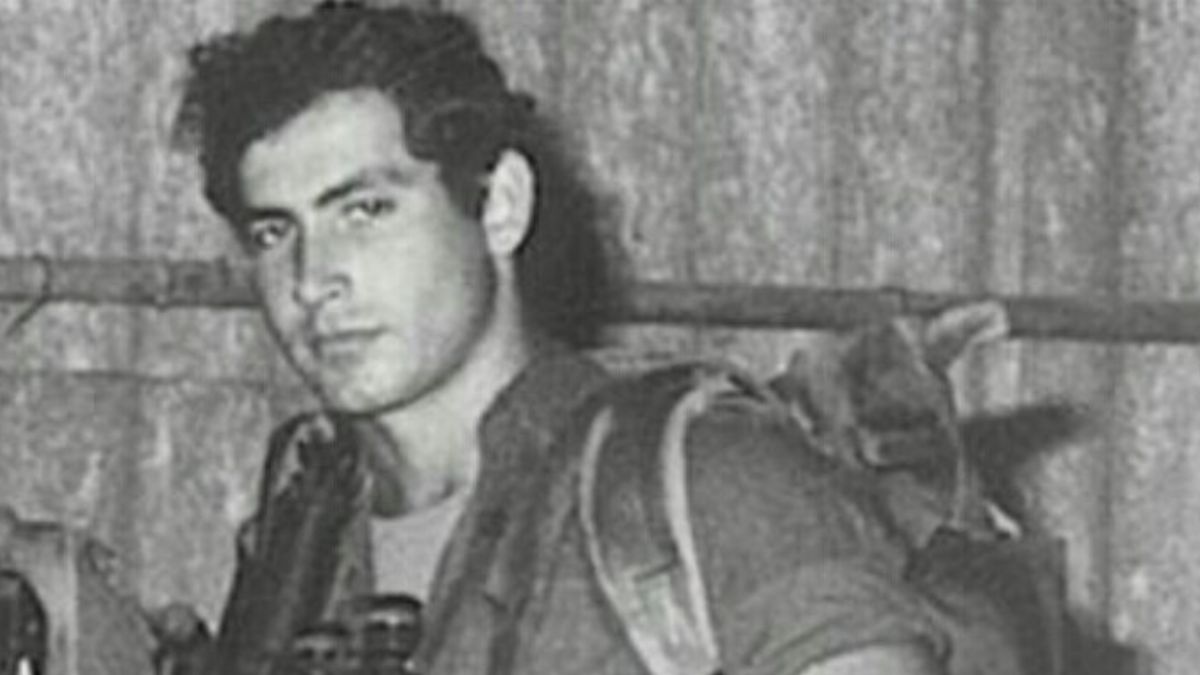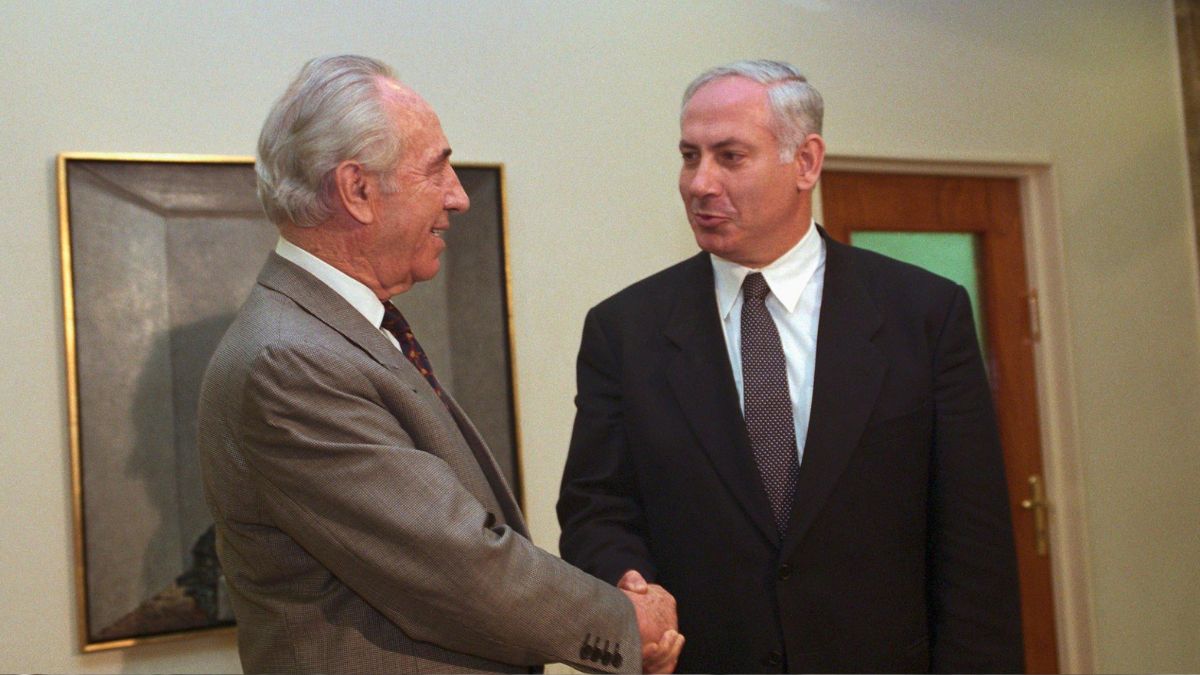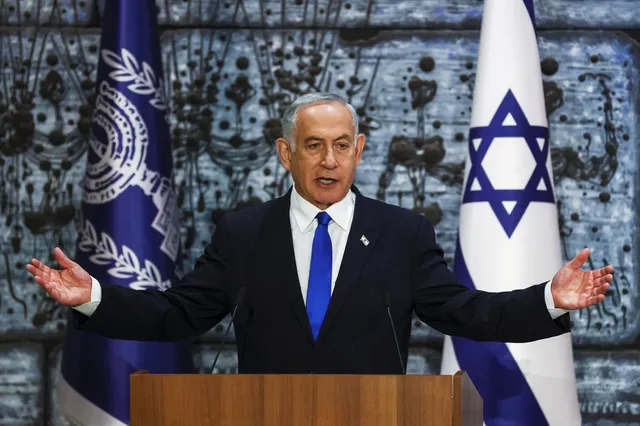- By Shivangi Sharma
- Sun, 20 Oct 2024 01:20 AM (IST)
- Source:JND
Israel's longest-serving prime minister, Benjamin Netanyahu has played a pivotal role in shaping the nation's political landscape over the years. Known for his strong leadership and divisive policies, Netanyahu has ushered in Israel's most religious and hardline government in history, steering the country through both periods of prosperity and controversy. His tenure has been marked by significant domestic and international challenges, cementing his legacy as one of Israel's most influential figures.
From his early days as a military commando to becoming a dominant figure in Israeli politics, Netanyahu has shaped Israel’s strategic vision.
Netayahu’s Early Life
Benjamin Netanyahu was born in Jaffa in 1949 to Tzila Segal, an Israeli-born Jew, and Benzion Netanyahu, a secular Jew from Poland who changed his name after settling in Palestine. Netanyahu traces part of his ancestry to Spain. He was raised in Jerusalem but completed high school in the United States.
How Netanyahu Became Israel's Leader
Benjamin Netanyahu's career began in 1967 when he joined the Israeli army, quickly becoming an elite commando and serving as a captain during the 1973 Arab-Israeli War.

An old picture of Netanyahu when he served as Captain in the Israeli Defense Forces-Commando Unit (Image credits: Reuters)
In 1982, he became the deputy chief of mission at the Israeli embassy in Washington, DC, and was appointed Israel's ambassador to the United Nations in 1984.
In 1988, he was named deputy foreign minister under Prime Minister Yitzhak Shamir. Netanyahu rose to chair the right-wing Likud party in 1993, leading it back to power after a 1992 election defeat. He temporarily lost the leadership to Ariel Sharon but reclaimed it in 2005 after Sharon formed Kadima. Netanyahu served as prime minister from 1996 to 1999 and again for a record 12 years from 2009 to 2021, marking his sixth term in office.

Image: In June 1996, Netanyahu, at 46 years old, became the youngest prime minister in Israel's history, shaking hands with the outgoing leader, Shimon Peres, as he assumed office. (Credits: grimnir74)
A Look At Netanyahu’s Most Notable Controversies
Bar-on-Hebron affair
The Bar-On–Hebron affair was a political scandal in Israel that began with Roni Bar-On's January 1997 appointment as Attorney General, leading to his resignation two days later amid criticism of his inexperience. Channel 1 correspondent Ayala Hasson reported it was part of a conspiracy involving Prime Minister Benjamin Netanyahu and Aryeh Deri of the Shas party, who sought a plea bargain for corruption. The scandal led to public outrage and a police investigation, resulting in charges against those involved, but only Deri was indicted.
Corruption Trial
Netanyahu was accused of a conflict of interest during his time as Minister of Communications, where he allegedly received USD 195,000 (Rs 1.62 crores) in cigars and champagne from Arnon Milchan and James Packer, along with USD 3,100(Rs 257,300) in jewellery for his wife. The charges include three incidents where Netanyahu allegedly assisted Milchan, including advocating for tax exemptions in 2013, seeking a US visa for him, and directing regulatory support for a merger deal in 2015.
Netanyahu’s Iron Wall
Netanyahu has been more involved in the Palestinian-Israeli conflict than any other Israeli prime minister. His first term (1996–1999) aimed to slow the process and ignore Yasser Arafat but included the Hebron Agreement (1997) and the Wye River Agreement (1998), which transferred more territories to the Palestinian Authority (PA).
After returning to office in 2009 for 12 years, Netanyahu oversaw three conflicts with Hamas and attempted to revive peace talks with the PA under both the Obama and Trump administrations, leading to the 'Deal of the Century' in 2020. The plan proposes annexing 87 per cent of the Israeli-controlled territory in the West Bank to Israel. Ninety-seven per cent of the Palestinian population would live in the proposed Palestinian state, while 3 per cent would reside in enclaves within Israel. It also stresses that there should be no forced population transfers of Arabs or Jews to avoid civil unrest.
Netanyahu's Iron Wall concept combines military, economic-technological, and political power to solidify Israel's status as a key regional player and to address the long-standing Palestinian rejection of Jewish statehood.

